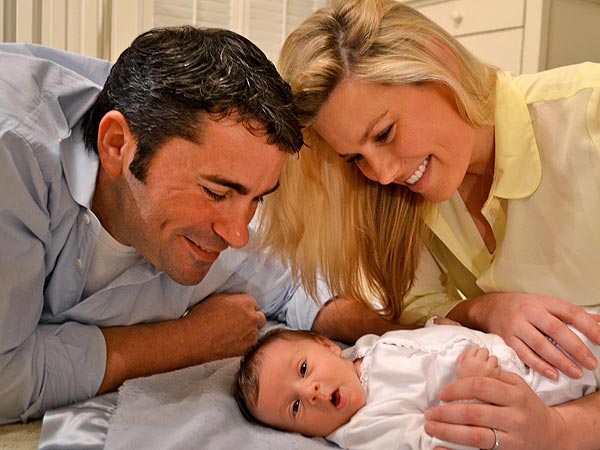NEW YORK (Reuters) – A U.S. judge handed outspoken hedge fund manager David Einhorn a victory in his battle with Apple Inc on Friday, blocking the iPhone maker from moving forward with a shareholder vote on a controversial proposal to limit the company’s ability to issue preferred stock.
U.S. District Judge Richard Sullivan in Manhattan granted a motion by Einhorn’s Greenlight Capital for a preliminary injunction stopping a vote on that proposal, scheduled for the company’s February 27 stockholders’ meeting.
The decision could hand Einhorn more leverage as he pursues his pitch for Apple to issue what he has called the “iPref”: preferred stock with a perpetual dividend that he contends would reward investors and help boost the company’s share price.
Greenlight sued Apple on February 7 as part of a broader pitch to unlock more of its $ 137 billion in cash. The hedge fund manager has lobbied Apple to issue preferred stock with a perpetual 4 percent dividend, and on Thursday made a direct appeal to shareholders on a teleconference.
The lawsuit itself challenged a measure called Proposal No. 2 that Apple put forward, which would eliminate its power to issue preferred shares without a shareholder vote.
At issue is Apple’s “bundling” of that measure with two other unrelated matters into a single proxy proposal.
Greenlight said it supported two of the proposed amendments, but not the one on preferred shares.
In his ruling, Sullivan said Greenlight and another investor who also sued Apple “are likely to succeed on the merits and face irreparable harm if the vote on Proposal No. 2 is permitted to proceed.”
“We are disappointed with the court’s ruling. Proposal No.2 is part of our efforts to further enhance corporate governance and serve our shareholders’ best interests,” Apple spokesman Steve Dowling said. “Unfortunately, due to today’s decision, shareholders will not be able to vote on Proposal #2 at our annual meeting next week.”
A spokesman for Greenlight called the ruling a “significant win for all Apple shareholders and for good corporate governance.”
But not all shareholders were happy. California pension fund CalPers, a major Apple investor and public supporter of Apple’s proposal, said implementation of “majority voting and shareholder approval for the issuance of new stock – preferred or otherwise – is worth waiting for.”
“We encourage Apple to reintroduce these measures as soon as is practical so that all investors can be heard,” Anne Simpson, CalPers’ Director of Global Governance, said in a statement.
BUNDLES
The ruling could be a warning for other companies when issuing proxy proposals, said James Cox, a professor at Duke University School of Law.
“It’s going to make managers reluctant to bundle things together, because you’re never going to know when you send them out if there’s an Einhorn out there,” he said.
The lawsuit was centered on a narrow issue of whether Apple violated U.S. Securities and Exchange Commission rules by “bundling” the preferred shares item with two other unrelated matters into one proxy proposal.
Greenlight’s lawyers contended the SEC rules were intended to protect shareholders from being forced to vote for a proxy proposal involving materially different issues that the investors might not entirely support.
Apple had argued Proposal No. 2, which only dealt with amendments to its charter, constitute a single matter and wasn’t bundled. Sullivan called the company’s arguments “unavailing.”
“Given the language and purpose of the rules, it is plain to the Court that Proposal No. 2 impermissibly bundles ‘separate matters’ for shareholder consideration,” Sullivan wrote.
Judge Sullivan also found that Greenlight would be irreparably harmed without the injunction, since it would be forced to vote against its own interests. Denying Greenlight‘s motion would prevent it and other investors for exercising their rights to a fair vote, Sullivan said.
Sullivan separately declined to block a vote from going forward on a separate proxy proposal, Proposal No. 4, which sought an advisory “say on pay” vote on Apple executives’ compensation.
The proposal had been challenged by investor Brian Gralnick of Pennsylvania, who contends Apple did not disclose enough details about how it made its compensation decisions.
Sullivan rejected that argument, saying Apple’s disclosures were “plainly sufficient under SEC rules.”
Arnold Gershon, a lawyer for Gralnick at Barrack, Rodos & Bacine, did not respond to a request for comment.
Apple shares closed up 1.1 percent at $ 450.81 on Friday.
The case is Greenlight Capital LP, et al., v. Apple Inc., U.S. District Court, Southern District of New York, 13-900.
(Reporting By Nate Raymond in New York; additional reporting by Poornima Gupta in San Francisco; Editing by Martha Graybow, Gary Hill, Leslie Adler and Carol Bishopric)
Tech News Headlines – Yahoo! News
Title Post: Einhorn scores legal victory vs. Apple in cash scuffle
Url Post: http://www.news.fluser.com/einhorn-scores-legal-victory-vs-apple-in-cash-scuffle/
Link To Post : Einhorn scores legal victory vs. Apple in cash scuffle
Rating:
100%
based on 99998 ratings.
5 user reviews.
Author: Fluser SeoLink
Thanks for visiting the blog, If any criticism and suggestions please leave a comment











